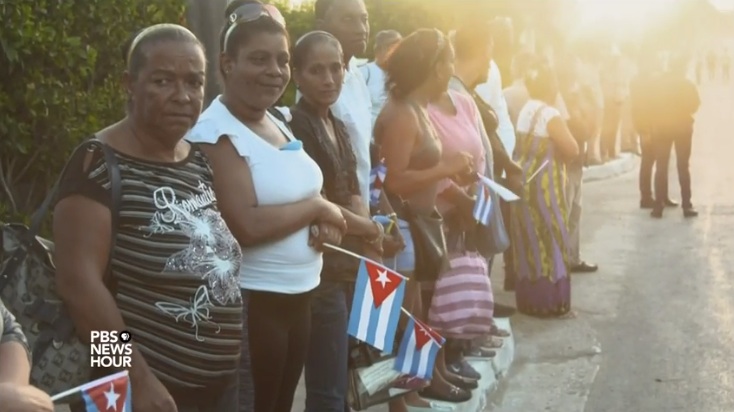
Even after the easing of U.S. sanctions, more than half a century of communist dictatorship has left Cuba's economy in ruins. Eighty percent of Cubans have government jobs that pay a paltry $40-$50 a month. Scraping by is a way of life.
The death of Fidel Castro, one of this hemisphere's most iconic leaders, puts the island nation at a crossroads. Many Cubans mourned his death, but others sense an opportunity for change.
The PBS NewsHour reporting team of Nick Schifrin and Zach Fannin talk to ordinary Cubans about the passing of their longtime leader. They profile a husband and wife in Havana who are a physicist and medical doctor, respectively. Their day jobs are working within the Cuban medical infrastructure, researching cures for cancer. But they are forced to freelance to make ends meet– the husband drives a cab.
The situation is even worse outside the capital. But as always in Cuba, there are those who are pushing the envelope. Nick and Zach report on Cubans who are innovating and improvising to share information in a closed society. There are challenges of course: how do you innovate and stay in touch with the world when the forces trying to stop it are legion?
They also look at what the election of Donald Trump means for the future of Cuban-American relations.






